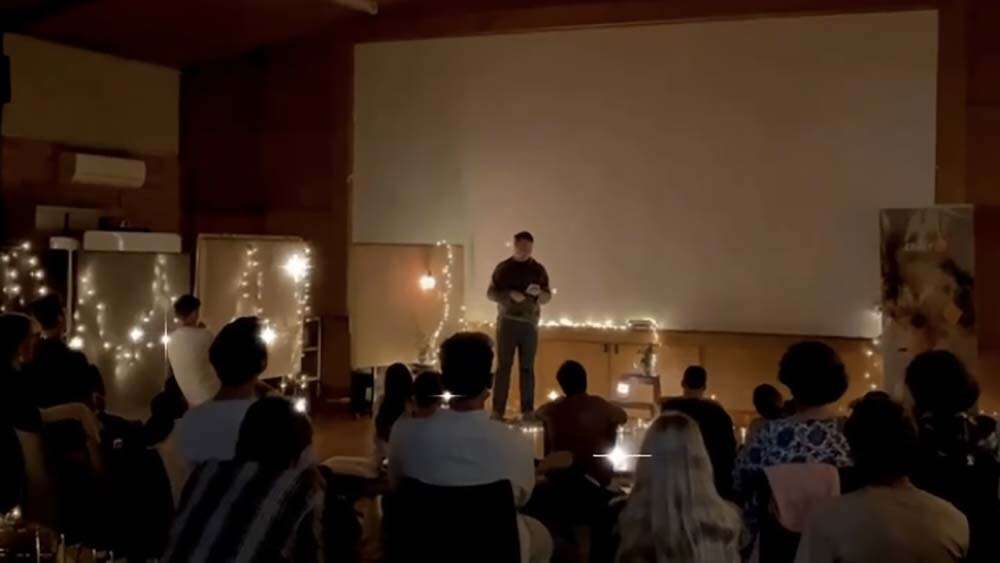In reviewing a night of poetry, David Krebs from a creative collective called EXALT, uncovers how poets can help our walk with Jesus.
After a last-minute venue change, an intimate evening of poetry lit only by fairy lights was witnessed by a full house. From the moment you entered the building, you could tell this was going to be a reflective space.
Each of five poets brought their own style, flavour, and reflections on life, faith, and everything in between.
The M-C got it right when he said: “images and stories are the things that we see the world by”. This was certainly true of the poetry evening EXALT, a creative ministry, ran last night. EXALT was founded by Nick Bishop, the last poet of the evening, to help Christians and non-Christians engage with Jesus in a different and creative way.
For Nick, poetry is a way to express the wrestle and journey of faith that he walks every day. It allows him to not only process what isgoing on but lets others into these struggles too. The sharing of struggles is essential.
Henri Nouwen, the Dutch writer on the spiritual life, notes in his book “The Wounded Healer” that: “Community arises where the sharing of pain takes place, not as a stifling form ofself-complaint, but as a recognition of God’s saving promises.”
This is the role that poets can play in the community of believers today. They can help us see that we are not alone in our struggles. They can help us understand some of the potential heart problems behind our struggles. They can allow us to know that we are not alone in our pain. But more than any of that, poetry helps us recognise God’s saving promises.
Each poet rawly shared from their lives and experiences. Yet even while they were describing their pain, there was always an underlying current of hope.
Each poet carefully crafted their poems to bring us back to Christ and recognise the saving grace offered by Jesus’ at his death and resurrection. Done poorly, this can feel trite and cliche.
However, each of the performers avoided this through the clever use of images and metaphors, creating visceral pictures in our minds to put our place in the suffering Jesus experienced for us.
You could tell that each poet genuinely believed that Jesus Christ made a difference in their lives and wanted each person in that room, listening to think about who Jesus was to them. The beauty of poetry is that it has the ability to get at issues of faith quickly. We were challenged to
- share the gospel,
- decide where we stand with God,
- and be still and just abide in God.
Perhaps more immediately than some sermons or songs, poetry has the power to force us to ask questions of ourselves and our faith.
They bring all the best sermons’ passion and theology but creatively strip it down to a 5-minute portion. To create on the surface, something simple, but underneath it is supported by an intricate web of images and thinking.
Poems are gobstoppers that you can just keep sucking on. They stick with you because they resonate with our own experiences but more than that, they lead us to hope, praise, and love God who saved us even when we were far off.
If last night was anything to go by, poetry has something to offer to the community of believers. Whether that is helping someone know they are not alone in their pain or showing someone Jesus for the first time. Poetry has a place in our lives as believers by giving us images and stories by which to see the world as God sees it.
You can find out what EXALT is doing on Facebook @exaltaus or on Instagram @exalt.aus.
Email This Story
Why not send this to a friend?





